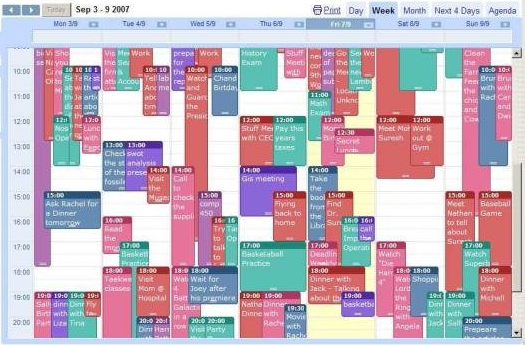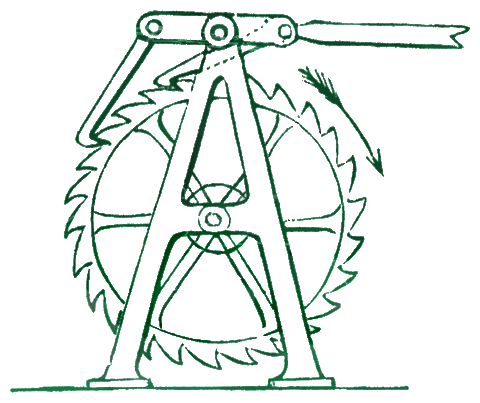# Effective Meetings
Lots of big things happen when you move into a technical management position. You're now directly responsible for the evaluation and promotion of developers, and it may be the first time you're exposed to organizational salary data or other personal information. These are big, obvious components of your new role. Another big part is less obvious though: if you thought your calendar was full before you're in for an alarming surprise.

For better or for worse, managers typically have a wall of meetings for most or all of their week. Here are some questions you can answer that will help you increase the value of what can look like a draining, pointless day.
# Have you previewed your day?
Open your calendar and do a top-down evaluation:
- Have you scheduled more meeting time than clock time?
- Any themes? (today wraps a sprint and plans the next iteration, lots of 1:1s, technical cross-team collaboration, events). If so, drop or reschedule outliers that are likely to break your flow.
- Is it going to be an energizing day or a slog? When should you step away from your keyboard for optimum benefit?
# Are you prepared?
- What do you need to do to prepare? one or more of:
- REVIEW (background info, proposal, goals or performance)
- THINK (brainstorm, suggestions)
- COMPLETE (tasks, previous action items)
- PRESENT (it's your meeting)
- Is this meeting going to be of marginal value to you? If so, what can you do to INCREASE the benefit to others? What's one thing you could LEARN?
# Have you looked for delegation opportunities?
- Would someone else on your team benefit more instead of you attending?
- Resist the urge to ADD attendees. Removing yourself is a secondary benefit, not the primary goal.
- Are you aware of any meetings that people on your team are in that YOU should attend instead? Can you shield them from distraction and give them back a big, juicy block of time for deep, technical work?
# Can you identify any alternatives to an in-person, synchronous meeting?
- Can a meeting be replaced with an async, collaborative document or whiteboard?
- This is increasingly important with remote teams across geographies
- If not, could an INSTANCE of a repeating meeting be replaced with this individual preparation, followed by a review meeting vs. a costly & slow group working session?
# Are you working to increase the value of and from meetings?
- Are meeting agendas shared ahead of time? (extreme rule: no agenda; no attenda)
- Is the group deferring decisions to the next session that could be determined now?
- Can you limit the number of sessions for a repeating meeting, with a commitment to extend if required? (Q: What's the time frame on this topic? When will we be done?)
- Do all attendees have actionable tasks for the next session of a recurring meeting?
# Are you working from the correct context?
- You're a technical people leader now; how does this meeting relate to your broader portfolio of responsibilities?
- people aspects
- cross-team coordination
- visibility & communication to senior leadership
- technical execution and delivery
# Are you looking after yourself first?
- Are you leaving your screens for lunch, physical activity, bathroom breaks?
- Have you scheduled (and publicized!) a block of recurring focus time for your own deep work?
- Can you identify any meetings where you are doing nothing to prepare and can likely get as much value from not attending and being informed of the outcome?
# Why Do Meetings Happen?
Meetings are so ubiquitous that anyone who pushes back is often branded the person who "hates" meetings. Not all meetings are bad, but the "schedule a meeting" reflex can signal a misalignment between intended goals and mechanisms for making progress.
Some Examples:
You don't know how to get started or make progress so a meeting is a proxy for pairing or a working session. The problem is the preparation and deliverables are not the same for a working group as they are for a meeting.
You want to understand current state so you schedule a status update. This is a very expensive way to present or deliver a status report that a regularly delivered, asynchronous written update can accomplish.
You want to ensure universal alignment (i.e. "Thou Shalt") but this typically needs to be captured in writing anyway, so maybe you can skip to the documentation, then share it for review and distributed editing.
You want to flex "I can make you all assemble before me". If you are on the receiving end, pick your battles and accept or refuse, then move on with your day/life.
# Summary: A Two-Step Response
- Immediate: Decline, Reschedule, Refuse (with rationalization), Reframe (group similar ideas or topics into a single meeting)
- Strategic: Deflect to async, written updates (channels, emails, shared documents), replace open-ended recurrences with a fixed number of sessions, and send the right people to the right meetings.
